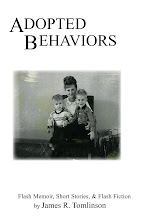“Lost Memory of Skin” by Russell Banks is the type of novel
I’d like to write, but only darker, without hitting the reader over the head
with its message.
So yeah, I’d like to write a longer work with a bunch of unsavory
characters who may or who may not do what is socially acceptable. And why shouldn’t
I write such a book? I’m surrounded by unsavory characters eight hours a day,
five days a week—including sex offenders. And that’s exactly what “Lost Memory
of Skin” is about: sexual deviants who reintegrate into society.
Banks creates a sympathetic protagonist in The Kid, a
registered sex-offender living under the Clayborne Causeway with baby-bangers,
chomos, and rapists; yet, his sexual experiences haven’t gone beyond masturbation
during adult pornography viewing sessions. Unfortunately, all that porn sparks
his imagination when he inadvertently enters a computer chat-room with the
intent of studding out his pet Iguana to someone known as Brandi-18. That’s
when his fantasy world collides with the “seemingly” real world and we discover
his troubled past through a series of interviews conducted by a mysterious
sociologist professor.
I especially like how Banks shows varying degrees of sexual deviations
from non-sex-offenders, two of which hit close to home. Here’s his description
of The Professor’s marriage:
But they did not marry
for sex in the first place, nor was it ever an essential part of their
relationship. Sexual intercourse, at least in the beginning, was merely a
requirement, an obligation on both their parts determined mostly by convention
and proximity and her wish to have a child, rather than by attraction or desire
(p.123).
Or how about The Kid’s thoughts regarding his mother’s
promiscuity:
But what about the
women who when they were little girls got hurt somehow? Hurt so bad they got
stuck there scared of having to grow up and as a result they never grow up… (p.37).
What disappoints me about “Lost Memory of Skin” is how the
plot gets in the way of its characters; especially The Professor’s cloudy past,
how The Kid’s left to form his own judgment of him through the philosophical
discussions of a Travel Writer who conveniently appears near the end of the
book. Still, this novel has its moments and is definitely worth reading.






8 comments:
Life imitates art Jim.
Haven't read it. I like the title. I generally prefer my fiction with at least some good characters, or at least redeemable ones.
Ever considered writing a memoir rather than a novel? Either one would make a great read.
Charles, Funny things is: the redeemable character here (The Kid) decides to live out his life amongst the dregs of society.
So yeah, TWM, life imitates art in a weird sort of way.
And Beth, most of my fiction borderlines autobiographical factoid -- did I just make that up or is it a blend? Let me say no; wouldn't want any of this to end up in the courtroom like my grandfather who drowned in a car when I was 8 years old; had to show the judge my mental instability, my history of mental illness.
Thanks for the comments
jim, you just highlighted why i prefer character-, instead of plot-driven, tales
as for your writing, go with what appeals to you... you have many tales that need telling....
Dark matter. I keep telling myself to keep a lid on the id when writing, but then it comes out in strange beds.
From the safety of my raft it looks like you were needed for breeding. Nothing more... Nothing less...Just a bilological clock ticking
hot mess. How do you find these characters?
Huck
"Fiction borderlines autobiographical factoid."
Wow. Enjoyed the read and thanks for sharing.
MW
Post a Comment